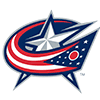This article is written every year as part of the RotoWire Draft Kit. And every year, from the time it was written 12 months prior to the present, Daily Fantasy Sports — specifically DFS golf — keeps getting bigger and bigger. Exploding would be a better word. DraftKings, FanDuel and other platforms have done a great job periodically making more and more user-friendly tweaks to keep things fresh and, from their viewpoint, growing and enormously profitable.
We're going to try to be as basic as possible here. If you are an experienced DFS golf player, you probably know a lot of this stuff. Still, there's a good chance you can pick up some tips. There are so many ways to play now. There are games that cover all four rounds (which DraftKings calls "Classic"), games that cover the two weekend rounds, which DK calls, well, "Weekend" and games that cover each of the four rounds individually ("Showdown").
There are other variables, such as Tiers and Captain Mode and Match Play and even Snake, which is an actual snake draft. You can learn all about them here. For the purposes of this article, we're going to concentrate mostly on the main games, though some strategy is applicable to whichever format you play.
It's important to note that you can start out playing for free or 25 cents or $1 or $3 as you get acclimated, and all the way up to thousands of dollars. It's also important to note that
This article is written every year as part of the RotoWire Draft Kit. And every year, from the time it was written 12 months prior to the present, Daily Fantasy Sports — specifically DFS golf — keeps getting bigger and bigger. Exploding would be a better word. DraftKings, FanDuel and other platforms have done a great job periodically making more and more user-friendly tweaks to keep things fresh and, from their viewpoint, growing and enormously profitable.
We're going to try to be as basic as possible here. If you are an experienced DFS golf player, you probably know a lot of this stuff. Still, there's a good chance you can pick up some tips. There are so many ways to play now. There are games that cover all four rounds (which DraftKings calls "Classic"), games that cover the two weekend rounds, which DK calls, well, "Weekend" and games that cover each of the four rounds individually ("Showdown").
There are other variables, such as Tiers and Captain Mode and Match Play and even Snake, which is an actual snake draft. You can learn all about them here. For the purposes of this article, we're going to concentrate mostly on the main games, though some strategy is applicable to whichever format you play.
It's important to note that you can start out playing for free or 25 cents or $1 or $3 as you get acclimated, and all the way up to thousands of dollars. It's also important to note that DFS and sports betting in general is not available in every state, and each state has its own set of limitations. DFS and betting sites track your location on your device to ensure you are eligible to play. More states keep coming on board. If your state doesn't allow fantasy or sports betting, it very well could soon. In California, where I live, DFS play is legal but sports betting through a book, such as the DraftKings Sportsbook, is not. That could change soon, as two measures are on the ballot this November.
BASIC INSTINCTS
A quick review of the basics: In Classic and most games, you pick six golfers who fit into a salary cap of $50,000. Every golfer has a dollar value as determined by the fantasy sites. Using DraftKings as a guide (which we will be doing throughout this article), the top golfers cost in excess of $10,000, a couple more than $11,000; the worst normally bottom out at $6,000. Golfers get points based on how they score in the actual tournament. It's more like the Modified Stableford Scoring System than stroke play. You get points added or taken away depending on what your guys do. But whereas in real golf a birdie is just as good as a bogey is bad, it's not that way in DFS play.
For instance, birdies are worth three points, but bogeys cost you only 0.5 points. Eagles are worth 8 points but double bogeys cost you only 1 point. A par is worth 0.5 POINTS. Each of the DFS sites scores a bit differently, but the gist is the same: They all reward riskier play. A golfer who totals, say, eight birdies, three bogeys and seven pars will net you more points than five birdies, no bogeys and 13 pars. Both are 5-under-par, but the first one is better in the DFS universe.
There are bonuses for players winning the tournament or finishing high on the leaderboard or for various streaks, such as three consecutive birdies, bogey-free rounds, rounds under 70, holes-in-one, etc. Again, each site is slightly different.
CASH VS. GPP
There are two general types of games, cash and GPP (guaranteed prize pool, also known as "tournament").
The GPPs are the bigger games with the better players, fewer winners and … far bigger payouts. Cash games pay out more players, though the winnings are far less. Those are generalities. We'll break down the different types of games even further, but also here's a good place to look.
For beginners and even those with a lower risk tolerance, cash games are clearly the way to go. There are three types of cash games, and we'll delve into them here: head to head, double up and 50-50.
Head to head is what the title says: You play against one other person for a certain dollar amount, and either they take your money or you take theirs, minus the "rake" for the site, which is akin to "the house," in Vegas parlance. If you each put in, say, $1, the winner gets $1.80, and the rake for the site is 20 cents. You could play against a random person or a friend. If you and a friend are learning together, this is a good way to get started.
In 50-50, half the entrants win. Let's say there's a game with 10 players and everyone puts in $1. The top-5 players — no matter who finishes first and who finishes fifth — win $1.80 each. That's a total of $9 and the site gets $1 as the rake.
In Double Up, about 40 percent of the entrants win — and double their entry fee. Let's say there's a game with 23 players and everyone puts in $3. That's $69. The top-10 players win $6 each — doesn't matter if you finish first or 10th. That's a total of $60. The "house" — the site — gets the other $9 as the rake.
Those are the games, here is some strategy about how to play them.
HISTORY LESSON
There are few things we like to focus on when picking a lineup. Current form, course history and a golfer's skill set in relation to what skills are best suited for that week's course.
If a guy is playing well heading into a tournament, great. If not, it's a bit risky to assume he'll find his form just when you need him to. (But DFS golf rewards risk, right?) Sometimes, course history trumps current form, but in that case, it's got to be a heckuva course history. Rarely do the better golfers continue to play courses they are terrible at unless it's a major or another big event (or the swag is too good to pass up).
Secondarily, each week when making the RotoWire/DraftKings Picks, we examine the course to see what stats will be critical to success. Does it favor longer hitters? Or is accurate iron play paramount? And what about scrambling and putting? And so forth. Sometimes it seems you can never drill down far enough: Some golfers are better on, say, Pete Dye-designed courses. Some do better on bermudagrass, others on bentgrass. You don't have to be an agronomist, but it wouldn't hurt.
THE FIRST CUT IS THE DEEPEST
And the second one hurts even more. Most of the time, if one of your six golfers misses the cut, it will wreck your chances. (Hello, Weekend and Showdown play!) If a golfer gets to the weekend and blows up, it's still almost always going to be better for you than if he didn't get there at all. And there's also the chance he can get hot. You might be able to withstand one MC in a small game, a cash game, but not a GPP with hundreds or thousands of players. Oh, you could still win some money in a GPP with only five golfers making the cut, as some games pay more than the first 100 finishers. But the amount of winnings drops very far and very fast after the top handful.
When filling out your lineup at the bottom, and you are looking to minimize risk, find a guy who makes a lot of cuts or who has made a number in a row. He might get more pars than birdies, which isn't optimum, but it's better than a trunk-slam. If you want to play with more risk, just make sure to know what lies ahead.
THE FORK IN THE ROAD
There are two general types of lineups: stars-and-scrubs or balanced. The first option means if you pick a $10,000-$11,000 golfer, you'll likely need to fill out your lineup and stay within the salary cap by dipping into the $6,000s. In a balanced lineup, all six guys would be in the $7,000-$9,000 range. For cash games, balance is the way to go. In GPP, you'll want to anticipate golfers who are not highly owned to try to separate yourself from the masses. Of course, if you think a guy will do well or even win, going in a different direction just because you anticipate high ownership, well, that doesn't make much sense. There are sites and Twitter accounts out there that track expected ownership. Follow them.
No matter whom you pick, think with your head and not your heart. Don't pick golfers because you like them personally. Conversely, don't avoid golfers you dislike if you think they otherwise would be the proper play. Of course, that's easier said than done.
RISK/REWARD
Birdie average. Birdie or better percentage. Birdie to bogey ratio. Bogey avoidance. These are stats the PGA Tour tracks. As we discussed earlier, not all 5-unders are created equally. Golfers who take more chances and get more birdies are good for your lineup (though maybe not your blood pressure). For the most part, the best golfers in the tournament will be the best golfers in DFS scoring. But there are some small differences, and that's all it takes to win or lose your game. Take a look at those stats. Some weeks, specifically on the tougher courses with lower winning scores, you may want to consider avoiding bogeys more than making birdies. Make the cut. Live to play another day – or two more days.
STRAIGHT AND NARROW
There are many other stats to consider, and they differ depending on the course. But there is one kind of golfer who never goes out of style: the kind who can get from Point A to Point B in the shortest possible time. Focus on Strokes Gained: Off-the-Tee, Strokes Gained: Approach and greens in regulation, especially the latter two. More times than not, that guy will be a solid pick. He may not be able to win because he can't putt, but he'll be around for the weekend and maybe a whole lot more. Every lineup needs good filler around the top guys.
GOLF TWITTER
Golf Twitter is like a bunch of golf fans sitting around in a bar talking golf. Only there are a lot more of them (and they're all talking at once). Twitter is a great news source. You learn about injuries and other important factors. And you can get a handle on ownership levels and just an overall vibe of how to read the tournament. As mentioned, there are sites that track/predict ownership levels. And, like RotoWire, many sites have so-called experts making picks. Some sites are free; some are subscription-based. The weekly DFS previews on RotoWire are free to all. Also, follow the actual golfers on social media. You might get an injury tip or a schedule update or something similar.
FLAVOR OF THE WEEK
At various points during the season, we see a golfer come out of nowhere to have a good week, or even a few good weeks. And Golf Twitter goes crazy. Chillax! Just like the best guys go through down periods, lesser players rise from the ashes every now and then. Most often, they will return from whence they came in short order. And these guys tend to do better in weaker fields, when so many stars are taking the week off. Often, the DFS sites will overreact and you'll see that reflected in their prices. It's a sucker play. Sure, one or two guys come out of nowhere every year for the entire season. But they are few and far between. And there's a reason the guy everyone is calling The Next Big Thing was on the Korn Ferry Tour last year.
Now we'll get into some more nuanced thinking, perhaps not needed for cash games but it couldn't hurt.
FINDING AN EDGE
The odds for a golfer to win a tournament will usually mirror his DFS prices. But every week there are a number of prices that don't jibe, with a golfer looking way overpriced or an incredible bargain. How do you know that? You follow golf. Sometimes it's obvious. For a second opinion, check the odds at the DraftKings Sportsbook or other sources. Those oddsmakers are pretty smart dudes (not saying the price-setting DFS dudes aren't smart, too). Look for the discrepancies; you might be able to take advantage of them.
AVOID THE CROWDS
Ownership levels — knowing how often a certain golfer will be in lineups — could be used in cash games but is far more important in GPP contest. But again, this type of thinking could prepare you for the next level of DFS play. It is far from an exact science, and it can be risky. Some experienced gamers can do it. You might want to fade a guy you think will do well because you think he will be highly owned. Try not to overthink things — don't double-cross yourself. But if all the evidence points to a golfer being highly owned, and you can find a comparable player with less predicted ownership or even at a cheaper price, then steer clear of the chalk. Once again, there are sites that monitor ownership levels early in the week. They tend to be for the biggest games, but there is some thread throughout all games. One more thing about high ownership: Most people aren't right too often. If they were, the books would be out of business. So when I see high ownership, I think that not that many people can be right. That doesn't work 100 percent of the time, but it you get the picture.
UN-CLASSIC
Some of the websites break golf tournaments down to the weekend and even individual rounds, known as Weekend and Showdown on DraftKings. Weekend is just what it sounds like — the game covers the final two rounds instead of all four. It's especially good if your Classic lineup is dead by Friday so you don't have to wait until next week's tournament.
Showdown is for a single round, and all four are usually offered. The prices can swing wildly from what the full-tournament numbers were when released on Monday, and the strategy changes, too. It's still golf, but if you're asking someone to have only one good round, the chances he can do it are greater. It seems risk-taking would and should be rampant here. Take a flyer on a lesser golfer who could become a great golfer for one round. Another consideration: It's hard to follow up a great round with another great round. Maybe you can at Kapalua, where life is like one big 59-Watch, but most often no. With the narrow focal point of one round, even a tee time could be an important tool. Bad weather coming in? Grab a guy with an early start. There are so many variables.
DraftKings also now has something called "Captain Mode." It's a one-round game. You still pick six golfers and have $50,000, but your team's designated "captain" accrues 1.5 points when he would ordinarily get only 1. The catch? You also have to pay 1.5 times his price to get him. You pick the captain, and it doesn't always have to be your highest-priced golfer.
It's not better, it's not worse. It's just another game that DK has created to help the gamer scratch his itch.
MATCH PLAY
It took awhile for DK to figure out Match Play but now it's been around for a few years. Get ready, because the Presidents Cup is this month. It's only twice a year — the WGC-Match Play in spring and either the Ryder or Presidents Cup in fall. You still pick six golfers for $50,000, but the scoring categories are different: holes won (three points each), holes halved (.75 points each), holes lost (-.75 points each), matches won (five points each), matches halved (two points each), three consecutive holes won (five points, max of one of those bonuses per round) and no holes lost (a whopping 7.5 points).
Really, it's all about the matchup before determining whom to pick. And certainly something like the Presidents Cup is a different animal, where lesser golfers can become, well, animals, when representing their team or their country.
OTHER SITES, OTHER GAMES
On some other sites such as PrizePicks, there are different types of games. For instance, they list a bunch of golfers with a preset over/under score for the round. It always ends in .5 to avoid a potential tie. You can take two, three or maybe four of them and bet whether they will go under or over the score. You have to hit on all of your guys to win, and the more guys you've played the more you can win. It may not be hard to win, especially two-man plays, but frankly, the payouts are strongly tilted to favor the sites. They also have a game where there are two sets of two golfers and you choose one guy in each set on who will have more birdies/eagles than the other. Again, you have to hit both sets to win.
AND FINALLY …
We said it earlier, we'll say it again. The easiest thing is, if you pick the golfers who do well in real golf, they will be almost always be good in fantasy golf, too. Don't overthink things. Go with your gut. Don't double-cross yourself. Good luck.



































